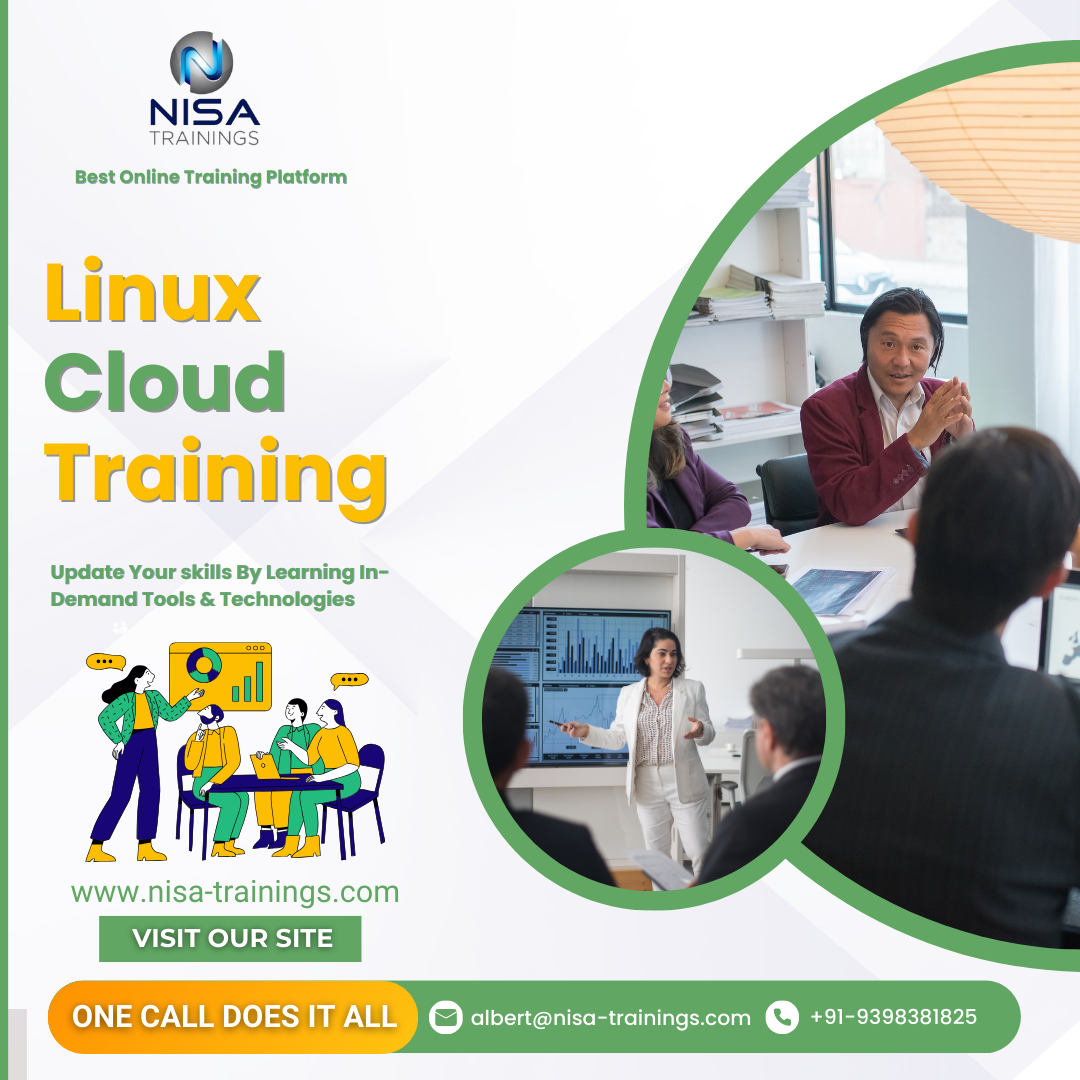Linux Cloud Training
Linux training is designed to provide individuals with the necessary skills to manage Linux servers in a cloud environment. It covers core Linux concepts and the tools needed to effectively operate, deploy, and maintain applications and services on cloud platforms like AWS, Azure, Google Cloud, or other cloud service providers.

Why should you choose Nisa For Linux Cloud Training?
Nisa Trainings is the best online training platform for conducting one-on-one interactive live sessions with a 1:1 student-teacher ratio. You can gain hands-on experience by working on near-real-time projects under the guidance of our experienced faculty. We support you even after the completion of the course and happy to clarify your doubts anytime. Our teaching style at Nisa Trainings is entirely hands-on. You’ll have access to our desktop screen and will be actively conducting hands-on labs on your desktop.
Job Assistance
If you face any problem while working on Linux Cloud Course, then Nisa Trainings is simply a Call/Text/Email away to assist you. We offer Online Job Support for professionals to assist them and to solve their problems in real-time.
The Process we follow for our Online Job Support Service:
- We receive your inquiry for Online Job
- We will arrange a telephone call with our consultant to grasp your complete requirement and the tools you’re
- If our consultant is 100% confident in taking up your requirement and when you are also comfortable with our consultant, we will only agree to provide service. And then you have to make the payment to get the service from
- We will fix the timing for Online Job Support as mutually agreed by you and our consultant.
Course Information
Linux Cloud Training
Duration: 25 Hours
Timings: Weekdays (1-2 Hours per day) [OR] Weekends (2-3 Hours per day)
Training Method: Instructor Led Online One-on-One Live Interactive
Sessions.
COURSE CONTENT :
1. Introduction to Linux and Cloud Computing:
- Overview of Linux operating systems (distributions, kernel, shell)
- Cloud computing models (IaaS, PaaS, SaaS)
- Cloud service providers (AWS, GCP, Azure)
- Benefits of using Linux in the cloud environment
2. Linux System Administration:
- Basic Linux commands and file management
- User management (add, delete, modify users and groups)
- File permissions, ownership, and access control
- System initialization and booting (GRUB, systemd)
- Package management (APT, YUM, RPM)
3. Cloud Computing and Deployment:
- Creating and configuring virtual machines (VMs) in the cloud
- Introduction to cloud storage (block storage, object storage, etc.)
- Setting up cloud networks and VPCs
- Managing security groups and firewall rules
4. Linux Networking in the Cloud:
- Understanding networking basics (IP addresses, DNS, routing, etc.)
- Configuring static IPs, DNS, and DHCP in cloud environments
- Setting up and managing VPNs, load balancing, and firewalls
- Securing cloud networks and managing access control
5. Cloud Automation and Configuration Management:
- Introduction to automation tools (Ansible, Puppet, Chef)
- Scripting with Bash and Python
- Managing cloud resources with Terraform
- Automating server provisioning and configuration in the cloud
6. Security and Compliance in the Cloud:
- Securing Linux systems in the cloud (firewall rules, SSH keys, etc.)
- Cloud security best practices (IAM, encryption, compliance)
- Auditing, logging, and monitoring security in the cloud
7. Monitoring, Troubleshooting, and Performance Tuning:
- System monitoring tools (top, netstat, htop, etc.)
- Performance optimization in Linux servers (CPU, memory, disk I/O)
- Cloud-native monitoring tools (AWS CloudWatch, GCP Operations, etc.)
- Troubleshooting techniques for Linux-based systems in the cloud
8. Advanced Topics (Optional/Advanced):
- Containers and Kubernetes in the cloud (Docker, Kubernetes, OpenShift)
- CI/CD pipeline integration with cloud-based Linux systems
- Cloud-native applications (serverless, microservices)
- Scaling Linux servers in the cloud
